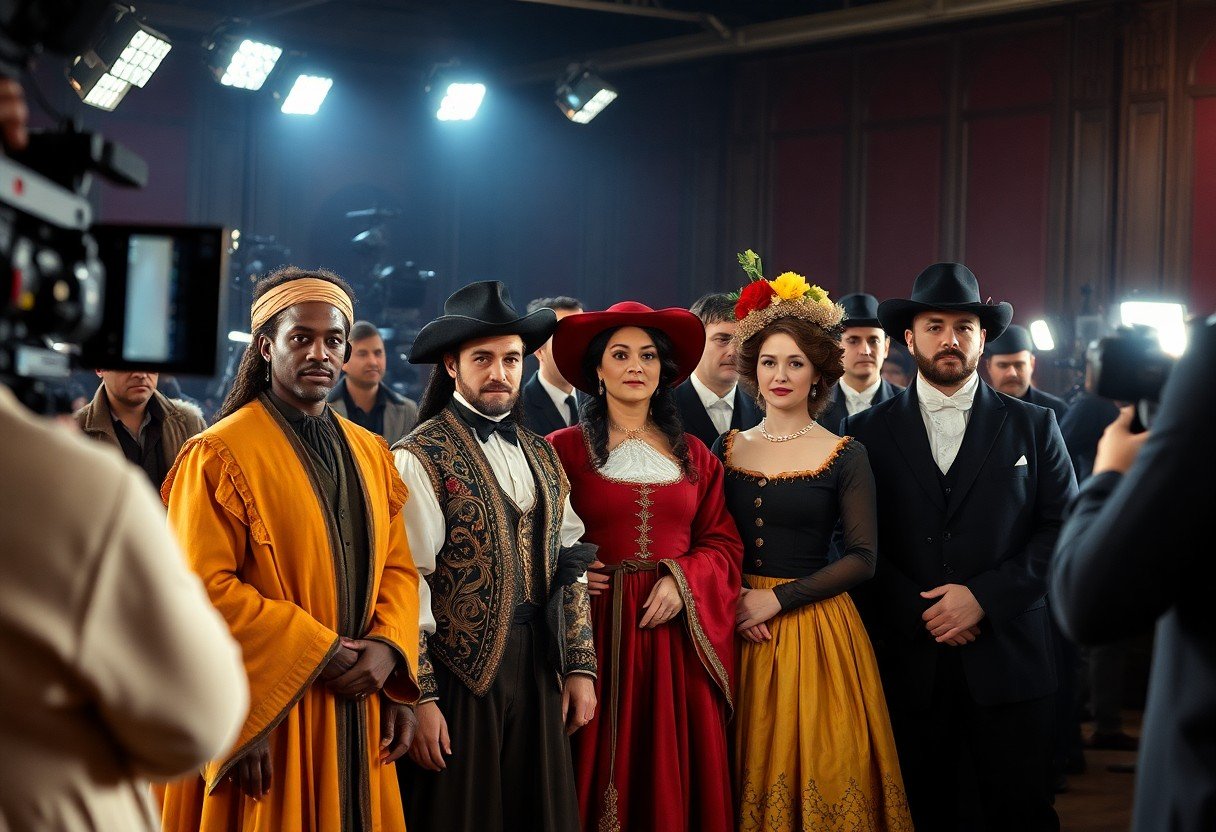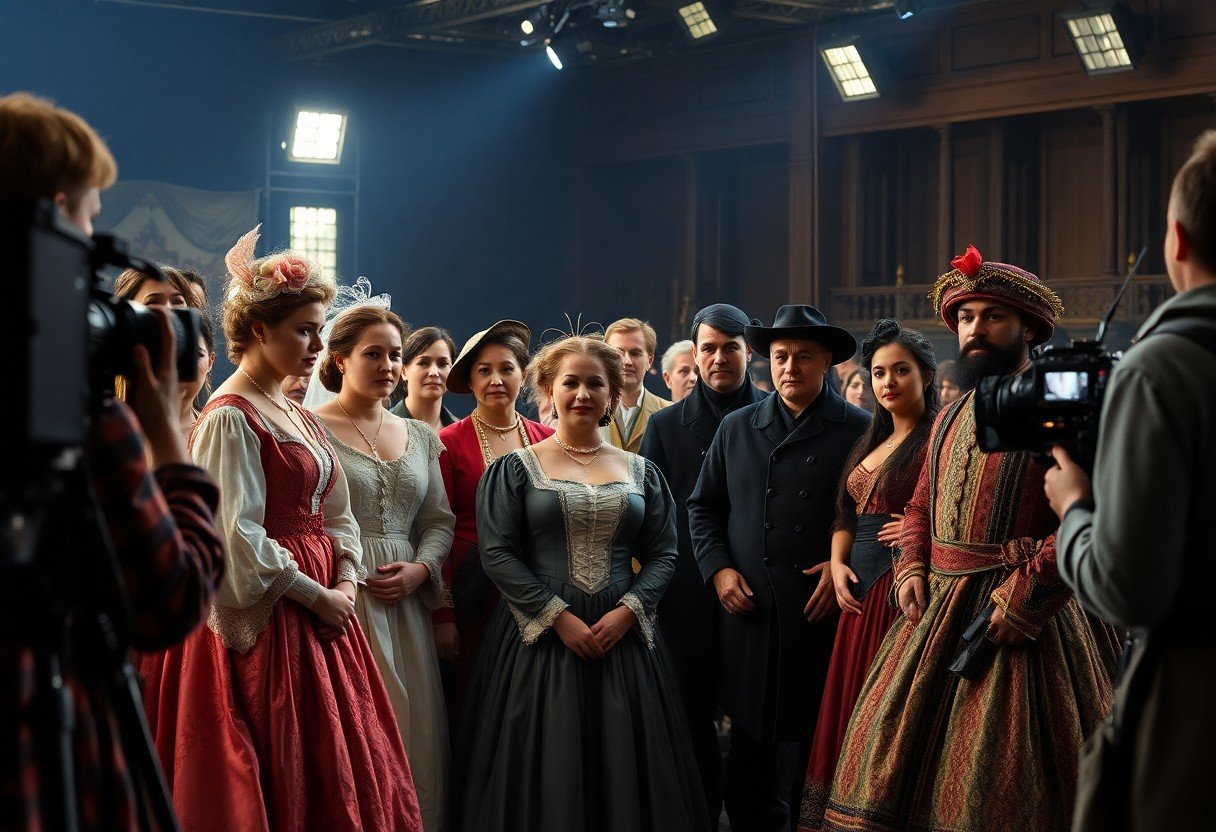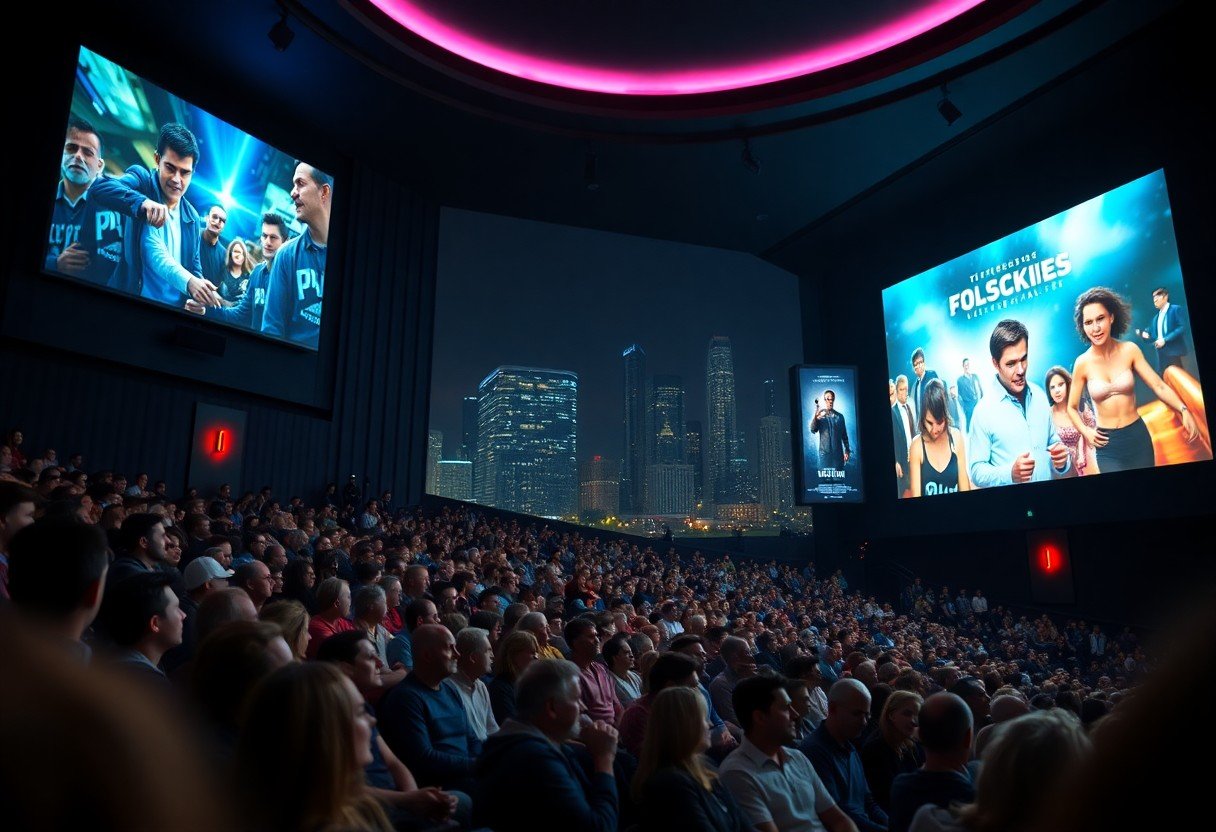Your perception of cultural icons is often shaped significantly by the biopics that portray their lives. These films not only dramatize personal experiences but also simplify complex narratives, which can lead to misunderstandings or a lack of recognition of their flaws. While biopics can celebrate achievements and humanize figures, they also run the risk of presenting a skewed version of reality that influences public opinions and attitudes. By examining how biopics shape your understanding, you can appreciate the implications these films have on both historical figures and society at large.
The Rise of Biopics
Before the late 20th century, cinematic portrayals of real-life figures were sporadic and often lacked depth. However, as audiences craved more immersive storytelling, biopics surged in popularity, reflecting a societal fascination with the lives of influential personalities. This rise not only entertained but also shaped how you perceive these icons, blurring the lines between reality and dramatization.
Historical Context
At the dawn of cinema, the concept of biographical films was simple, focusing primarily on significant historical events. Over the decades, as film became a powerful medium, biopics evolved into an intricate blend of fact and fiction, enabling you to engage with the personal and emotional lives of the icons portrayed.
Influence of Technology
Rise of advanced filming techniques, CGI, and distribution platforms has transformed the biopic landscape. With the ability to create visually stunning recreations of historical events, even your perception of time and location is altered. You can now experience the lives of icons more vividly than ever, offering a deeper personal connection.
Consequently, technological advancements have paved the way for more realistic representations of your favorite figures. You benefit from enhanced storytelling through high-quality visuals, immersive sound, and compelling narratives, allowing you to see these personalities’ lives in new dimensions. However, this also raises issues about historical accuracy, as producers may prioritize entertainment value over truth. It’s imperative for you to remain aware of this balance, critically assessing how these portrayals influence your understanding of the real icons behind the stories.
Biopics and Celebrity Culture
While biopics have become integral to celebrity culture, they often blur the line between fact and fiction. These films not only explore the complex lives of icons but also shape how you perceive their legacies. By focusing on personal stories, struggles, and triumphs, biopics can intensify your emotional connection to the subject, ultimately transforming public discourse about their contributions and controversies.
Redefining Icons
The portrayal of iconic figures in biopics allows you to witness their lives through a curated lens, often redefining the way you understand their achievements and mistakes. These narratives can highlight hidden aspects of their humanity, enabling you to relate more personally to their journeys, rather than viewing them solely as larger-than-life personas.
Public Reception and Impact
Impact extends beyond the screen, as audiences form new perceptions of the figures depicted in these films. You may find yourself reevaluating how you view these icons, influenced by dramatic interpretations and storytelling choices. Biopics can create strong emotional responses that lead to either admiration or criticism, ultimately shaping public narratives around these personalities.
With every biopic release, your perception of famous personalities can dramatically shift, making you either more sympathetic or critical of their choices. This duality can spark debates about their impact on culture, ethics, and societal values. Consequently, these films play a significant role in solidifying or dismantling the legacies of icons, influencing how future generations will remember and engage with their stories. Hence, the dynamic relationship between biopics and public reception remains vital in shaping cultural dialogue around celebrity influence.
Crafting Narratives: Truth vs. Fiction
Any biopic serves as a narrative lens through which you can view the lives of its subjects. The challenge lies in discerning the balance between factual representation and dramatic embellishment. While some filmmakers prioritize authenticity, others opt for a cinematic flair that may distort the true essence of their icons, ultimately shaping your public perception in unexpected ways.
Artistic License in Storytelling
Along the journey of creating a biopic, filmmakers often exercise artistic license, manipulating events and character traits for dramatic effect. This freedom allows you, as the audience, to engage more deeply with the emotional arcs of the narrative, but it can also lead to a skewed understanding of the truth behind the iconic figures portrayed.
The Dangers of Historical Misrepresentation
An inherent risk lies in the ability of biopics to distort history. You may find yourself influenced by *inaccurate portrayals* that serve to *glorify or vilify* figures inaccurately. This distortion can skew public perception, often leading to a misinformed view of the icons you admire. In addition, the tendency to focus on *sensational elements* over factual accuracy means that you might absorb *myths* rather than *realities*, perpetuating misunderstandings that can resonate for years. When the line between truth and fiction blurs, it’s important to approach these narratives with a discerning eye to understand their impact on your perceptions and beliefs about cultural icons.

Case Studies of Notable Biopics
Unlike many genres, biopics uniquely shape the public perception of their subjects. Here are some notable examples that illustrate this phenomenon:
- Bohemian Rhapsody (2018) – Grossed over $900 million globally, revitalizing Freddie Mercury’s legacy.
- The Imitation Game (2014) – Highlighted Alan Turing’s contributions, leading to increased awareness of LGBTQ+ issues.
- A Beautiful Mind (2001) – Brought attention to mental health, earning 4 Oscars and shaping views on schizophrenia.
- Rocketman (2019) – Explored Elton John’s struggles, leading to a renewed appreciation for his artistry.
- Selma (2014) – Depicted Martin Luther King Jr., impacting perceptions of civil rights movements.
Success Stories: Impact on Public Perception
At the forefront of biopic success stories lies the ability to transform public perception. Films like Bohemian Rhapsody and Selma not only gained critical acclaim but also inspired viewers to reconsider the legacies of figures such as Freddie Mercury and Martin Luther King Jr. As a result, these representations can revive cultural interest and instigate societal dialogue surrounding their real-life counterparts.
Controversial Portrayals
Behind the allure of biopics lies the potential for controversy, particularly when filmmakers take creative liberties with the truth. You may find that portrayals are often criticized for exaggeration or misrepresentation, which can lead to public backlash against the individuals depicted. Understanding these portrayals is vital for discerning the line between fact and artistic interpretation.
Another example of the controversy arises with films such as The Doors, which presents a dramatized and arguably romanticized account of Jim Morrison’s life. While it entertains, it can also distort history, leading to misconceptions about Morrison’s addiction and genius. Such portrayals can perpetuate dangerous stereotypes, confusing audiences about the true struggles that icons faced. Films like Joker provoke discussions surrounding mental illness, demonstrating the responsibility creators hold in framing their subjects accurately.

The Role of Media and Marketing
Many biopics leverage media and marketing to influence your perception of cultural icons. They create an entire ecosystem around films by utilizing promotional tools and platforms to reach broad audiences. For example, the dynamic presence of Nick Cave in various media helps in crafting a multifaceted view of his artistry, ultimately enriching public engagement through various channels of information.
Promoting Biopics
Below, you will find that promotional tactics range from traditional methods—like trailers and posters—to digital marketing strategies that engage fans on social media. Effective promotion creates anticipation and excitement, often capitalizing on the icon’s existing fan base to draw in wider audiences.
Shaping Audience Expectations
After establishing a strong promotional presence, biopics begin to shape your expectations regarding the narrative and key themes. This involves creating carefully curated messages through trailers, interviews, and social media interactions, which will set the tone of what you anticipate from the film.
At this stage, your understanding of the film begins to solidify. The marketing strategies employed can lead you to expect particular aspects of an icon’s life—sometimes highlighting their struggles or triumphs. While this can ignite your interest, it also runs the risk of shaping biases. A biopic might present a filtered narrative, leading you to form incomplete perspectives about the actual events. You might become engrossed in the dramatized storyline, overlooking the nuances of reality behind the actual icon’s life, making it necessary to approach these narratives critically.
The Future of Biopics
Not only do biopics continue to engage audiences, but they also shape how you perceive historical figures and their legacies. As storytelling evolves, you can expect to see biopics branching into innovative formats, exploring underrepresented stories, and challenging traditional narratives. This evolution ensures the genre remains relevant and thought-provoking in the years to come.
Trends and Innovations
Trends in the biopic genre signal a shift towards more immersive and diverse storytelling. You may notice an increase in biopics that focus on lesser-known figures, shedding light on multi-faceted stories that challenge your understanding of fame and success. Additionally, innovative techniques such as virtual reality and interactive storytelling may soon become commonplace, offering a more engaging experience.
Evolving Public Expectations
Any shift in public expectations is reshaping the biopic landscape. Viewers, like yourself, increasingly demand accuracy, diversity, and depth in how real lives are depicted. You are no longer satisfied with mere dramatizations; you look for authenticity and nuance that respects the complexities of iconic figures. This evolution is forcing filmmakers to rise to the occasion and provide a more balanced representation of their subjects while also maintaining storytelling integrity.
Understanding evolving public expectations involves recognizing that you seek more than just entertainment from biopics. You want to see authenticity reflected in the narratives you watch, as well as a portrayal that encompasses the full spectrum of your icons’ lives. Questions of ethical representation have become paramount; you expect filmmakers to balance dramatization with factual integrity. As a result, your engagement with these films will prompt deeper conversations about their subjects and their impact on society, pushing the genre towards excellence.
Final Words
Upon reflecting on the impact of biopics, you can see how these films serve as powerful narratives that shape your understanding of iconic figures. They often highlight specific moments, attributes, or controversies that create a compelling image, influencing how you perceive their legacies. By dramatizing lives, biopics can evoke empathy and admiration, while also sparking debate, ultimately molding public perception in profound ways. Therefore, as you engage with these cinematic portrayals, consider the intentional choices that affect your interpretation of these influential characters.









